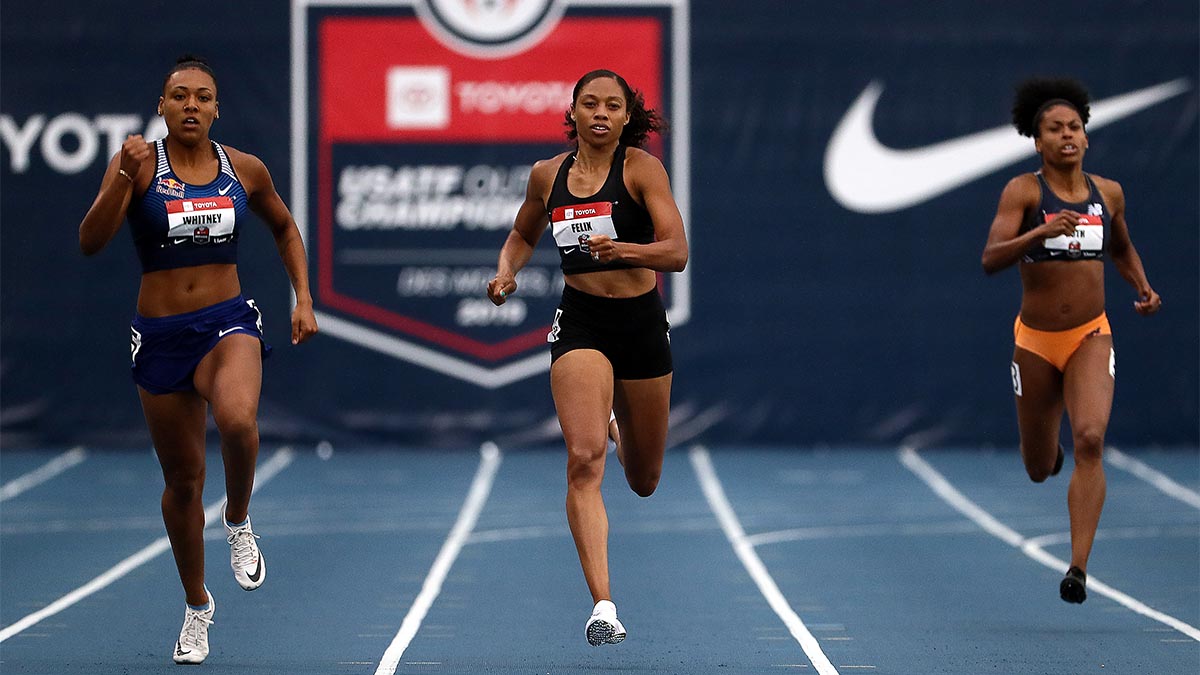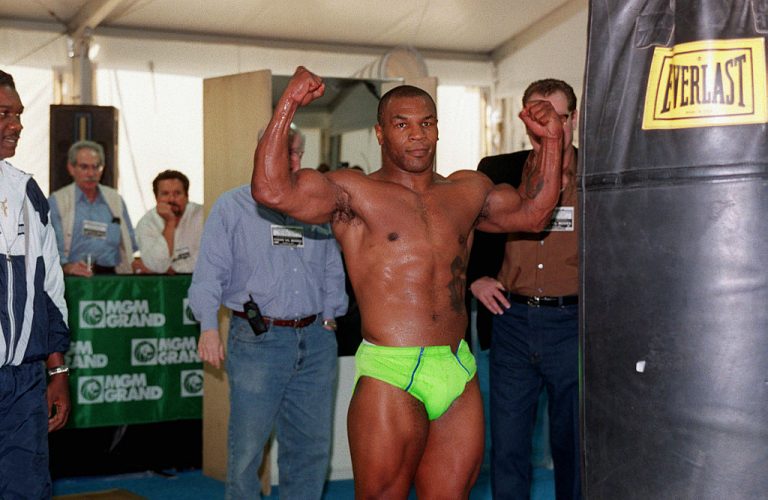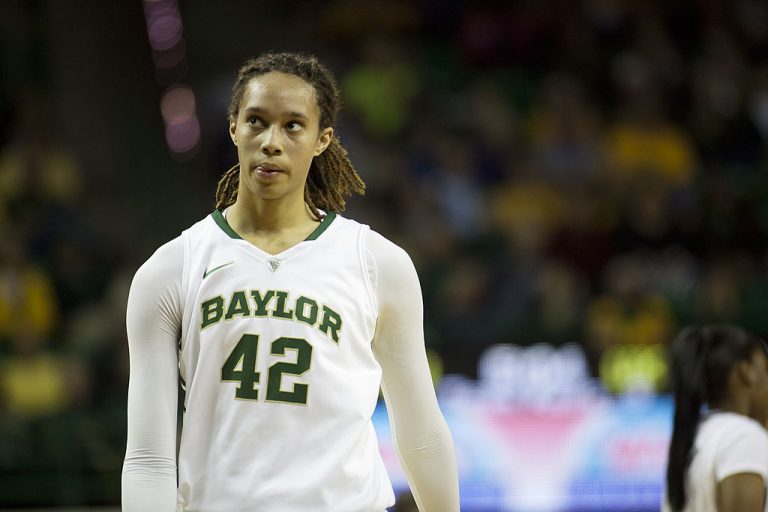Women Athletes Are Disrupting Traditional Perspectives on Parenthood
Why this matters
Athletes face numerous physical and psychological challenges just to get their bodies ready to compete in sport, and the decision to get pregnant only amplifies them. Lately, elite women athletes like Allyson Felix and Skylar Diggins-Smith have taken matters into their own hands.
“In my mind [starting a family] was something that was going to happen after my playing career was over,” Women’s National Basketball Association player Cheyenne Parker wrote in The Players’ Tribune earlier this year.
“The idea of getting pregnant while I was in the W??” she continued. “I mean, I knew players who had done it. But I also knew that was some superwoman-type behavior.”
Playing professional sports is no easy thing. Nor is giving birth to another human being. Put them together, and it’s perhaps unsurprising that athletes who have babies and continue to compete are often viewed with a mixture of reverence and awe. Sports mothers, the story goes, are superwomen – Marvel-movie-strong authors of successful comeback stories, the ultimate examples of what elite athletes’ bodies can do.
Related: Women in the Undercurrent of Sport Are Thriving
However, this framing of parenthood also can be harmful. After all, giving birth is neither superhuman nor extraordinary; it is, in fact, very human and extremely ordinary (if, at times, dangerous). To lose sight of that fact is to strip athlete mothers of their basic humanity; to further contextualize sports as a masculine sphere where women don’t truly belong; and to gloss over the ongoing failure of teams, leagues, and organizations across sports to provide adequate support for elite athletes who also want or have children. Not all people who have children are women, but it has predominantly been women athletes who have been negatively affected by this narrative.
Athletes, we are told – and they are told, as well – can do anything. Their bodies aren’t like the rest of ours. But “to put them in this situation of calling them superheroes or superhumans in order to justify them being out on the court, back out on the track is super problematic,” says Anne Blaschke, an associate lecturer at UMass Boston and a lecturer at the Massachusetts Institute of Technology. “Without these structural supports, it’s putting these women at incredible risk and their children at risk, too.”
How the ‘Superwoman Schema’ Devalues Women Athletes
To see how this can play out, consider the story of U.S. Olympic track and field athlete Kara Goucher. While running with a Nike sponsorship in 2010, she was forced to wait to announce her pregnancy so the company could do a Mother’s Day campaign – and then pressured to get back out on the track sooner than was healthy for her and her baby if she wanted to keep her pay.
“The sporting industry is a male-dominated industry, and [becoming] a mother was sort of looked down on, like, ‘Ugh, great, there goes her career,’” Goucher told The Washington Post recently.
Women athletes have long been demeaned and subjected to gender bias. At first, they were discouraged from playing sports because of concerns that doing so would impact their fertility – something with no basis in medical science but reflective of broader mores that measured the worth of women almost exclusively through their ability to bear and raise children. As society became less overtly sexist, women athletes were not taken as seriously because it was assumed that eventually they would get pregnant and no longer compete. (This is, of course, at odds with what is expected from male athletes: Men are often mocked for taking even a single day of parental leave, a reaction framed as letting their team down.)
Seeing athlete mothers as superwomen might seem like an overdue cultural corrective to earlier stereotypes. But the reality is more complicated.
“Right now, we don’t treat pregnancy as something that’s worthy of care,” says Letisha Brown, assistant professor of sociology at Virginia Tech. “This narrative of unbreakability is harmful because humans are breakable. By always focusing on them as being superhuman, it takes away from their actual humanity and their vulnerability to injury and pain and suffering.”
This can be especially true for Black women. University of North Carolina scholar and associate dean Dr. Cheryl Woods-Giscombe, who studies health disparities affecting African-Americans, has coined the term “Superwoman Schema” to describe the tendencies of Black women to push for success with limited resources and feel obligations to present an image of strength to the world, to self-sacrifice, and to avoid seeming vulnerable.
All of these pressures can have negative health impacts. Black women are also more likely to suffer maternal complications and have higher rates of maternal mortality, making it particularly harmful to see them as “super.” “Framing Black women as superwomen [also] plays into these tropes of Black people as being non-human and being essentially here for the labor of others,” says Brown. “And sports is definitely a site of labor and performed labor.”
Parental Leave and Sport as a Workplace
When the narrative around elite athletics—that if you try hard enough and work hard enough, you can achieve anything—combines with the sexist barriers that people who give birth are up against, it becomes a perfect storm to expect athletes who have babies to just work hard and make sacrifices in order to get back into the game. Not only that, there is often concern that taking time off to recover from birth or be present for a child could be a sign of weakness or giving up or could be sacrificing prime athletic years.
It was only after athletes like Olympic gold medalist Allyson Felix and Goucher called Nike out publicly, in The New York Times, that the company changed its maternity leave policy for sponsored athletes. The WNBA negotiated a new collective bargaining agreement, referred to as a CBA, with the most progressive family leave and family planning benefits not just in sports, but in any other workplace. Players like Breanna Stewart and Sue Bird talked openly about being able to freeze their eggs. Stewart and her wife, Marta Xargay, recently announced they had a baby through a surrogate, which may have been made possible by the fact that Xargay retired from her professional basketball career this year. Meanwhile, Bird and her partner, professional soccer player Megan Rapinoe, are both continuing to compete at the highest levels.
The new WNBA CBA, passed in early 2020, came not long after Skylar Diggins-Smith played the entire 2018 season while keeping her pregnancy a secret from everyone, including her team at the time, the Dallas Wings, which she says provided her “limited resources to help me be successful mentally/physically.”
Seeing an athlete like Felix lose her sponsorships or an athlete like Diggins-Smith say she hasn’t received support from her team “plays into sports being a workplace,” says Brown, “and how we don’t even have real, legitimate maternity leave in most workplaces.”
In her piece in The Players’ Tribune, Parker wrote about the unexpected ways her union had her back during her pregnancy this year. “I might have taken a couple of breaks in terms of giving my full undivided focus to all of the tiniest details” of the CBA, Parker wrote. “And one of those details might have been the maternity leave stuff. Because, like I said, maternity, that just wasn’t in my plans. That was for after my playing career.”
But the Women’s National Basketball Players’ Association had taken care of her. She scrolled through the CBA after finding out she was pregnant and then beginning to panic about finances and she saw it: full salary for the entirety of her maternity leave, a guaranteed two-bedroom apartment, and a $5,000 child-care stipend. “I just sat there, staring at this ‘boring’ collective bargaining agreement. ... and literally I’m crying tears of joy,” she wrote.
Athletes Unlimited, a pro women’s league for softball, volleyball, and lacrosse, announced their new family planning policy earlier this year, which includes unlimited paid maternity leave. “The key here is that you don't want to make players choose between pregnancy and their careers,” Athletes Unlimited CEO and co-founder Jon Patricof told Insider.
From the Bottom Up
When athletes are unable to negotiate within the existing systems, like the WNPBA was with their new CBA, they’re creating their own. Felix, the Olympic track and field athlete who was instrumental in getting Nike to change its maternity leave policy, announced a new childcare fund that she started alongside her new sponsor, Athleta. The fund provides $10,000 in childcare stipends for selected athlete parents.
When the Tokyo Olympics announced that breastfeeding parents could not bring their infants to the Games because of the ongoing coronavirus pandemic, a company called Milk Stork stepped in to help figure out how to transport over 21 gallons of breastmilk pumped by athletes in Tokyo back to their babies.
“We praise them, we see them, we see them winning, we see them doing great things, and brands are benefiting from them and networks are excited to share their stories,” Molly Dickens, co-founder and executive director of &Mother, a new nonprofit organization co-founded by track and field Olympian Alysia Montaño, told The 19th. “Now can we reevaluate what needs to be in place to support more journeys through this? That’s where I feel like the door has cracked open to start having these conversations and start setting standards.”
Related: Transforming the Question of How an Athlete's Psychological State Influences Their Performance
But in order to do that, athletes are calling for a real reckoning with the way we talk about mothers and what we expect of them. Athletes are up against the pressures that say mothers should be at home with their children, while at the same time knowing they only have so many years to be at peak athletic performance. But individual athletes cannot solve what is ultimately a systemic problem, one that affects them during their playing careers and long after. Which is why the conversations about egg freezing, started by athletes like Bird and Stewart, are so enlightening. The two even partnered with Seattle Reproductive Medicine to create a video series of their egg-freezing journeys so that others could see the process.
“I really like that Sue Bird is bringing this conversation about the implications of being a professional athlete in your ’30s to the table, because for many women, this is one of the decades where they’re most successful, because they’re building on like the analytics, the experience, and physically they’re still quite strong,” says Blaschke.
“They’re bringing this completeness and profound nature of yourself – what you embody as an athlete – to the table, but in terms of fertility, they’re in a more difficult place in that conversation,” she continues. “So I love that [Bird] is reaching out to other women athletes and other American women workers writ large and saying, ‘you can have these conversations.’”
Monthly Issue
The Athlete's Journey
If you are what you repeatedly do, what happens when you stop doing it?
The athlete's journey outside of competition is not often covered in media, nor considered all that much by fans. It can, however, be core to athletes’ lived experiences, impacting decisions on where to play, which business opportunities to take, how to take care of their physical and mental health and more.




